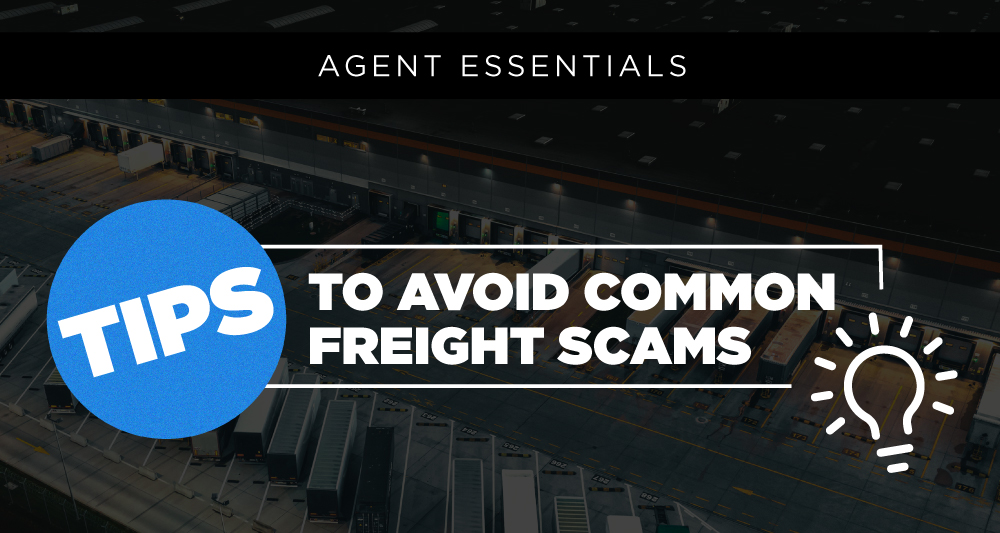It has been estimated that fraud costs the transportation industry one billion dollars each year. To avoid costly interactions with scammers, it is vital for freight agents to be aware of common freight scams and best practices for dealing with suspicious situations. Being knowledgeable and watching for warning signs are the best ways to stop fraudsters in their tracks.
Common Freight Scams
Some of the most common freight scams are cases of identity theft. Bad actors can pretend to be reputable carriers to pick up loads with no intention of delivering them. This can result in cargo theft or in a ransom situation where the scammer asks the shipper for a large payout in order to return their cargo. As a freight agent, you may be in danger of someone posing as you to engage in this kind of fraudulent activity, which is why protecting your personal information is so important.
Another common freight scam is double-brokering. This occurs when one carrier accepts a load and then gives that load to another carrier to move the freight. The carrier that double-brokered the load will then get paid for moving it and the carrier that delivered the freight will not receive any payment for their labor.
Freight scams can also be present on load boards, whether it be through identity theft or scammers attempting to impersonate shippers who will then ask for advance fees for something like an insurance verification or background check prior to allowing carriers to accept their loads. The best thing to do when encountering scammers on a load board is to report them immediately so that they can be removed from that board as soon as possible.
Best Practices to Avoid Fraud
Although there are plenty of scammers out there, following some best practice guidelines makes it significantly less likely that you will become a victim of fraud. Protecting yourself from scams starts with learning the warning signs that often accompany them. Verifying the identity of a shipper or carrier is a great way to avoid scams. If their website, phone number, DOT number, or address appears suspicious or is inconsistent with their information on a trusted database, they may be a bad actor.
Cultivating strong relationships with shippers and carriers can also help you to avoid fraud. Going to a trusted client or carrier directly decreases your chances of being fooled in cases of identity theft. In addition, working with a 3PL with a large network of trusted and vetted carriers can prevent interactions with scammers posed as carriers.
Using secure channels of communication is another way to avoid becoming a victim of fraud. Only conducting business on your official email can prevent targeted attempts to scam you through a personal email address or other medium. Watching for warning signs in your communications with shippers or carriers, such as auto-generated email replies or suspicious reactions over the phone, can help you identify scammers.
Being aware of common freight scams as a freight agent is important to protect yourself as well as clients and carriers from bad actors. Understanding how scams work and what warning signs to look for is the first step in preventing fraud.
The England Logistics Freight Agent Program provides companies with information and tools to expand and allow them to manage their business. Backed by the England Logistics brand, participating agents enjoy increased market visibility and established business connections. Our dedicated team also delivers consistent support for day-to-day operations. This allows freight agents to expand their portfolios while being reinforced by a reliable team.



